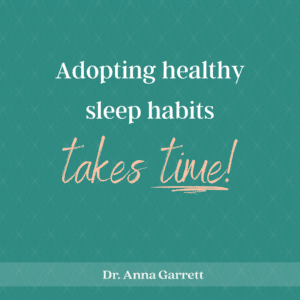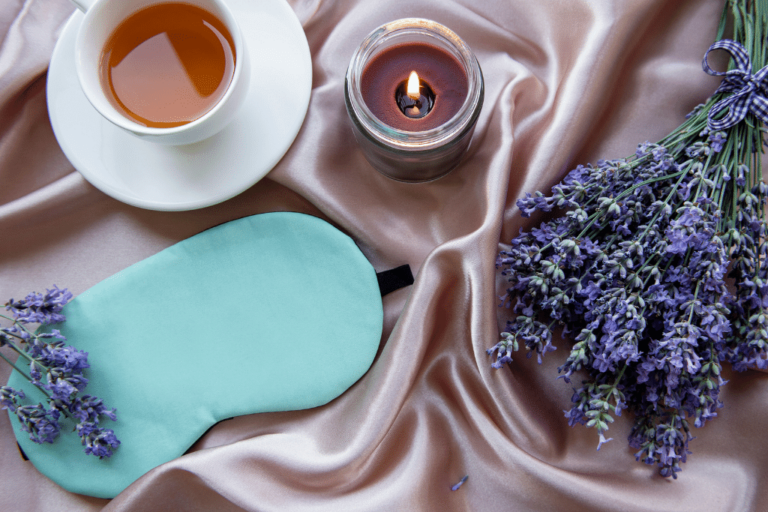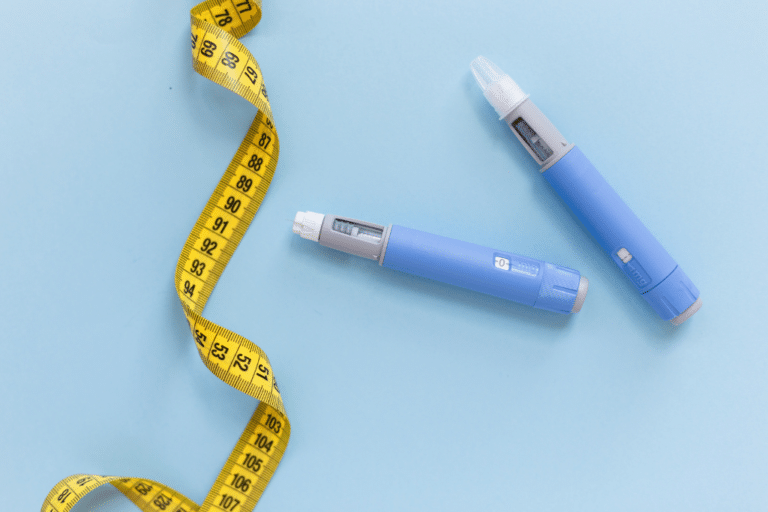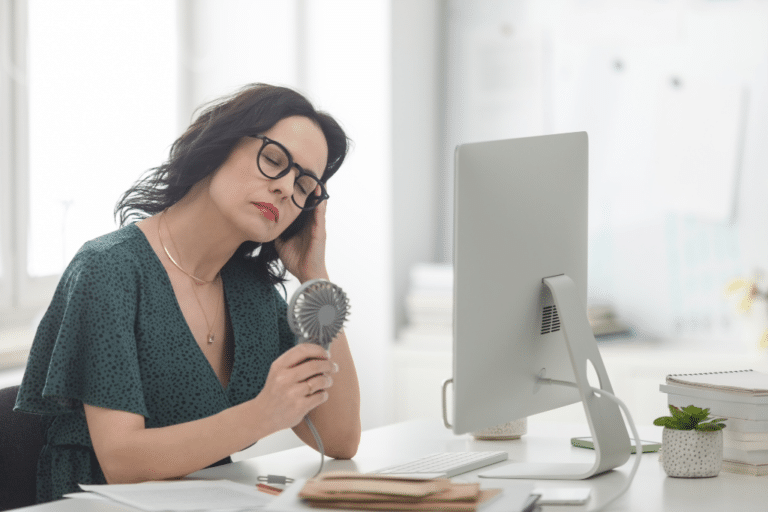Healthy Sleep Habits.
We all know the importance of good hygiene. Most of you, I hope, shower frequently, brush your teeth, and wash your hands, so I’m pretty sure we don’t need to talk about that.
There is different hygiene I am interested in exploring further, though…sleep hygiene. Before we get into that, let’s first discuss WHY many women suffer from sleep issues during perimenopause.
What does perimenopause have to do with sleep problems?
The biggest culprit in sleep change during perimenopause is progesterone. In perimenopause, lack of ovulation leads to less progesterone. Less progesterone means more middle-of-the-night awakenings. In addition to an imbalance of sex hormones during perimenopause, a lot of women suffer from high levels of cortisol, which can contribute significantly to chronic insomnia. You can read more about hormones and insomnia here.
What exactly is sleep hygiene and why is it so important?
Sleep hygiene is simply healthy sleep habits. Healthy sleep is essential for overall wellbeing. At least 40 million Americans each year suffer from chronic, long-term sleep disorders, and an additional 20 million experience occasional sleeping problems. Insomnia is one of THE most distressing problems that women experience in perimenopause. Why is good sleep so important?
- Lack of sleep impairs your cognitive function.
- Your sex drive goes down the drain.
- It’s depressing.
- It makes you look old.
- It can cause early death.
- Your judgment suffers.
So, now that we know why sleep is so important, let’s move on to how we can improve our sleep hygiene.
Top 10 ways to Practice Healthy Sleep Hygiene in Perimenopause
1. Try to go to bed and wake up at the same time every day
As tempting as it is to sleep in on the weekends, a fluctuating schedule makes it difficult for your body to get into a sleep rhythm.
2. Don’t watch tv, use the computer/phone, or read in bed
Your bed should be reserved for two things- sleep and romance. When you read or watch tv in bed, you associate the bed with wakefulness. Also, the blue light from computer or phone screens can negatively affect your melatonin production.
3. Avoid caffeine in the afternoon
If you know you are sensitive, you may want to skip it altogether.
4. Exercise before 2 pm every day
Exercising consistently improves sleep but avoid exercise too close to bedtime because it raises cortisol.
5. Optimize your bedroom
Every person is different, but usually, a quiet, dark, cool (62-65 degrees) environment is the most optimal for tranquil sleep. Invest in a nice set of sheets and comforter. And if your mattress is old, consider upgrading. I’ve had many clients improve sleep and pain issues by investing in a quality new mattress.
6. Have a bedtime routine
Doing the same thing each night tells your body it’s time to sleep. Budget an hour for winding down where you unplug from electronics, read, do some light stretching or other relaxation exercises.
7. Avoid alcohol
As tempting as a “nightcap” may be, it is best to avoid any alcohol in the evening. Although it can make falling asleep easier, the effect wears off and disrupts later sleep.
8. Find methods of relaxation
If you are having difficulty falling asleep, make relaxation your goal. Focus on your breathing or listen to a guided meditation.
9. Learn to say “no”
How many of us have tossed and turned at night, our minds flooded with upcoming commitments? “No,” is a complete sentence, so practice saying it. Your body will thank you.
10. Do a brain dump
 Rather than spend precious sleep minutes worrying about tomorrow, do a brain dump of everything that’s on your mind. Write it down and know that you can relax and rest easy.
Rather than spend precious sleep minutes worrying about tomorrow, do a brain dump of everything that’s on your mind. Write it down and know that you can relax and rest easy.
Creating healthy sleep habits does not need to happen overnight. Many of these changes take time. As a veteran insomniac, it has taken years to figure out what works best for me. And it can change over time…so be willing to experiment.
Dr. Anna Garrett is a menopause expert and Doctor of Pharmacy. She helps women who are struggling with symptoms of perimenopause and menopause find natural hormone balancing solutions so they can rock their mojo through midlife and beyond. Dr. Anna is the author of Perimenopause: The Savvy Sister’s Guide to Hormone Harmony. Order your copy at www.perimenopausebook.com.
Dr. Anna is available for 1-1 consultation. Find out more at www.drannagarrett.com/lets-talk




